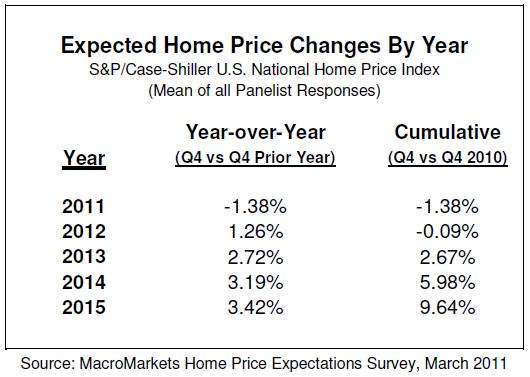People ask us this question all the time. With Chicago home prices down more than 34% from the bubble peak many would-be sellers think they might want to wait for home prices to recover before putting their home on the market. It’s a natural inclination but it turns out that a lot of very serious academic research has been done on this subject and it demonstrates fairly convincingly that, when faced with this decision, most people make irrational decisions (spoiler alert: waiting is often irrational). And these academic types, focusing on what is called behavioral economics, have even quantified the cost of this irrationality.
As way of background, economists used to always assume that humanoids acted rationally when faced with financial decisions. However, over time it has become apparent that they don’t. So economists and psychologists have increasingly performed experiments to determine the extent of irrationality and the results are fascinating. When it comes to making selling decisions people exhibit irrationality that behavioral economists call loss aversion. I highly recommend reading the Wikipedia article I just linked to as it is really, really interesting. (As a side note you can see evidence of this behavior in the stock market and you can profit from it – most recently from the Linked In IPO.)
OK, but in case you are too lazy busy to read that article let me give you my $.25 explanation. The basic concept is that people are irrationally reluctant to take a loss on an investment and hold on to that losing investment for far longer than they should. There is a tendency to want to make up the loss on that particular investment rather than deploy the invested capital in investments that have better prospects. Let me explain this a couple of different ways, using an example where you paid $400,000 for a place that is now worth $325,000 and will net you $305,000 after closing costs. Let’s also assume that you have enough equity to sell the place or you can afford to write a check at closing and you are able to buy or rent another place (big assumptions but if this isn’t true then the thought process is totally different).
First, let’s get something straight. Your invested capital at this point is $305,000, not $400,000, since that is what you can get out of it. The other $95,000 is already gone. And don’t get confused by the fact that you may have a mortgage on the place that equals or exceeds $305,000. Regardless of who provided the money YOU have it invested in this house.
The question at this point is what is the best use of the $305,000 that you can walk away with today? Is it best used to buy another house, pay off the mortgage, or make a leveraged investment in high yield mutual funds? If you didn’t own your house today and were sitting on $305,000 would you buy it today for that price? If not you need to get rid of it ASAP because keeping it is logically equivalent to repurchasing it today.
It turns out that behavioral economists have discovered that people tend to place a higher value on the same object when they own it as compared to when they don’t own it (it’s called the endowment effect). In other words, they wouldn’t buy it today for what they think it’s worth to them now that they own it. This is a fact. It makes no sense. Enough said.
As I mentioned above people often feel compelled to make up for losses on the very investment that they lost the money on in the first place. But that makes no sense either. If your losing investment is only going to appreciate by 2% per year from here on out wouldn’t you be better off deploying the capital in an alternative investment that is expected to appreciate at 5%? Or, in the case of real estate, another home that will also appreciate at 2% per year that you will enjoy more?
As if this explanation isn’t sufficient consider the fact that playing the waiting game has failed for the last 4 years and is likely to continue to fail for the next 5 years. The most recent MacroMarkets home price forecast survey of 111 economists predicts that over the next 5 years home prices will average an increase of about 2% per year. In other words…the market is not going to come roaring back.

This line sums it up: “In other words…the market is not going to come roaring back.”
Everyone thinks/says the market will come back, but they leave out the part that it will not come back “roaring” to the crazy levels it did last decade.
Can you write a follow up post when you DON”T “have enough equity to sell the place or can afford to write a check at closing and you are able to buy or rent another place.”
Well, in that case the choices are pretty clear and sellers seem to understand that scenario pretty well:
1) short sale
2) stay put until you have enough cash
3) rent the place out and move on
Absolutely correct. We bought a 1br condo, east facing, on the River in the west loop in April, 2010 for 315. Now, best (only) offer we have gotten is 265. Maybe can get 280 or 285, but won’t see 315 for a long time, IMO. And if we’re dumb enough to tax away the CBOT and the CME, forget downtown condos and forget Chicago as a financial center. Of course, the “Robin Hoods” (the “No Nothings”) will think it’s a victory if they get the legislature to reject the reasonable tax break for telephone trading. And the sad thing is, many of these mopes are educated.
There’s no back…because the market was inflated, hence the burst. Sell if you want, get what you can and move on.